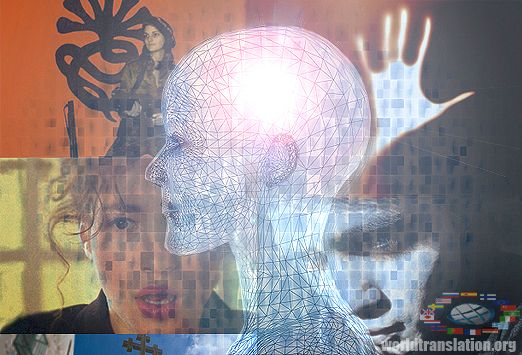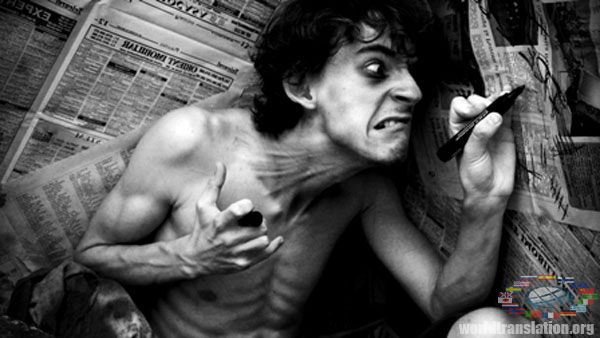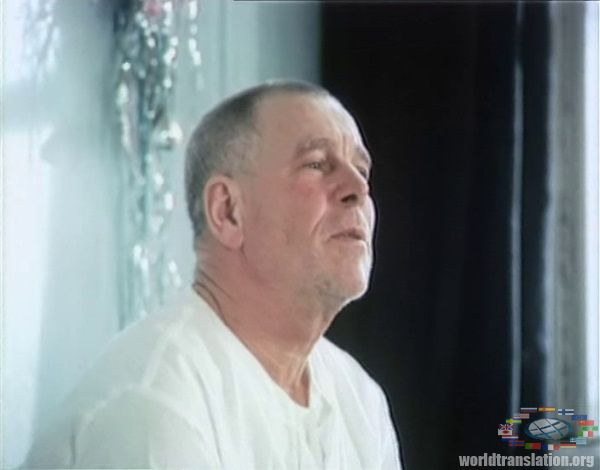Mental disorders

Clinical manifestations of this pathology is psycho-organic syndrome - mental unsoundness with the reduction of memory,  consciousness, will, and the weakening of affective stability, reduction of working capacity and other possibilities of adaptation. Psychopathological symptoms often are associated with organic affections of the brain.
consciousness, will, and the weakening of affective stability, reduction of working capacity and other possibilities of adaptation. Psychopathological symptoms often are associated with organic affections of the brain. Psycho-organic syndrome may be residual (after suffering chronic symptomatic diseases), and to develop and progress by different variants: in those cases when the pathological factor directly affects the brain (encephalitis, intoxications, chronic vascular diseases, tumors, traumatic brain injuries, etc.).
Psycho-organic syndrome may be residual (after suffering chronic symptomatic diseases), and to develop and progress by different variants: in those cases when the pathological factor directly affects the brain (encephalitis, intoxications, chronic vascular diseases, tumors, traumatic brain injuries, etc.).
Such options may be:
- asthenic variant - predominate asthenic disorders: increased physical and mental fatigue, phenomenon of irritable weakness, hyperesthesia, intemperance of affect;
- explosive variant - irritability, rudeness, affective lability, reduced adaptation;
- euphoric variant - background mood is raised with a touch of euphoria and complacency, obtuseness, reduced insight;
- apathetic variant - a sharp decline in interests, indifference to others.
 Psycho-organic syndrome is developing in the structure of remote consequences of: traumatic brain injury, intoxication, vascular chronic diseases, infections, and other organic brain diseases.
Psycho-organic syndrome is developing in the structure of remote consequences of: traumatic brain injury, intoxication, vascular chronic diseases, infections, and other organic brain diseases.
Paralytic (total dementia) syndrome is manifested with: euphoria, complacency, a sharp decrease of criticism, delusions of grandeur and wealth, as well as the change of characterological personality traits.  Delusional ideas are characterized by absurdity, instability, megalomanias (large amounts of money, that he is president, emperor, army commander, etc). Dress up brightly and senseless, decorate clothes with orders, medals, etc. Lost sense of tact, inadequate behavior, awareness is unavailable to them. Are observed such speech disorders, as: dysarthria, syndrome of Arzhil Robertsonare, epileptic seizures are not uncommon, apoplectical states with paresis or paralysis, sleep disorders.
Delusional ideas are characterized by absurdity, instability, megalomanias (large amounts of money, that he is president, emperor, army commander, etc). Dress up brightly and senseless, decorate clothes with orders, medals, etc. Lost sense of tact, inadequate behavior, awareness is unavailable to them. Are observed such speech disorders, as: dysarthria, syndrome of Arzhil Robertsonare, epileptic seizures are not uncommon, apoplectical states with paresis or paralysis, sleep disorders. Paralytic syndrome is manifested at progressive paralysis and senile psychoses, that arise at the age of 70-80 years. It is associated with pathological processes in the brain. The first signs of mental disorders in old age are manifested in change of personality traits, appear: pettiness, greed, selfish ambition, suspiciousness, sexual promiscuity. Patients become fussy, unable to concentrate attention. Changing rhythm of sleep (it becomes superficial and short-term), then the formula of sleep is disturbed.
Paralytic syndrome is manifested at progressive paralysis and senile psychoses, that arise at the age of 70-80 years. It is associated with pathological processes in the brain. The first signs of mental disorders in old age are manifested in change of personality traits, appear: pettiness, greed, selfish ambition, suspiciousness, sexual promiscuity. Patients become fussy, unable to concentrate attention. Changing rhythm of sleep (it becomes superficial and short-term), then the formula of sleep is disturbed.  Patients sleep during the day and at night walking around the apartment, rearranging furniture, looking for something, etc. In the future, patients do not remember names of their children, their age, year and month. Recent events are replaced in the memory by events from the distant past. Such people lose their ability to navigate in space, can not determine the direction, distance, location of objects, do not have "a sense of time" and others. Also are manifested senile tremor and senile changes of gait, which becomes shuffling.
Patients sleep during the day and at night walking around the apartment, rearranging furniture, looking for something, etc. In the future, patients do not remember names of their children, their age, year and month. Recent events are replaced in the memory by events from the distant past. Such people lose their ability to navigate in space, can not determine the direction, distance, location of objects, do not have "a sense of time" and others. Also are manifested senile tremor and senile changes of gait, which becomes shuffling. Pseudo paralytic syndrome may develop in the symptomatic diseases and common infections, encephalitis, head injuries, chronic intoxications, organic brain damages (vascular diseases, tumors, etc). Thus, the pseudo paralytic syndrome by clinic reproduces the picture of paralytic syndrome , but differs from it by etiological factors.
Pseudo paralytic syndrome may develop in the symptomatic diseases and common infections, encephalitis, head injuries, chronic intoxications, organic brain damages (vascular diseases, tumors, etc). Thus, the pseudo paralytic syndrome by clinic reproduces the picture of paralytic syndrome , but differs from it by etiological factors.
Video: "TOP 10 Rare Mental Disorders"